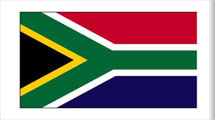By Minister Jeff Radebe
[[{"type":"media","view_mode":"media_large","fid":"407879","attributes":{"class":"media-image","id":"1","style":"float: left; margin: 3px;;;;;","typeof":"foaf:Image"}}]]South Africa has the ability to attract foreign investment and host multi-national companies with great success. We are a dynamic economy and a popular destination for investors.
Since the advent of democracy, the inflow of investment from top international companies has reinforced our credentials. We offer the stability of a developed country along with the lucrative opportunities of a vibrant emerging market.
Last year, South Africa attracted R62 billion in investment inflows. It also ranked high among the BRICS countries – Brazil, Russia, India, China and South Africa - in attracting foreign investment.
Foreign direct investment contributes significantly to our national goals of socio-economic development by creating sustainable jobs and the opportunity for skills development and training.
Government’s work to attract foreign direct investment and ensure its even distribution is advancing our national social objectives, according to the findings of a recent study, “Foreign Direct Investment and Inclusive Growth: The impacts on social progress” by international consulting firm Deloitte UK.
The study ranked South Africa 63 out of 132 countries and made us the second-best performer after Brazil among the BRICS nations to convert foreign direct investment into social progress.
It affirms our work over the last 21 years to undo the gross inequalities and skewed delivery of basic services we inherited as a result of apartheid’s distorted policies.
In 1994, many black South Africans systematically excluded from basic services, prevented from accessing the benefits of society and participating in the economy. Millions languished in poverty; dispossessed of suitable housing, access to safe water and sanitation or sustainable energy sources.
The study singled out our success in access to basic knowledge, nutrition and basic medical care as key areas that resulted in ensuring the wellbeing of South Africans.
In education this was achieved through Early Childhood Development facilities which cater for over a million children under four years old. Additionally, Grade R enrolments has more than double from 300 000 in 2003 to 705 000 in 2011 reaching the level of universal access.
More than 8 million learners are benefiting from our no-fee school policy which has helped increase enrolment in secondary schools from 51 per cent in 1992 to 80 per cent currently. The National School Nutrition Programme provides meals to nine million learners.
Government’s social assistance grant programmes, its initiatives to develop small scale famers and nutrition education programmes are all aimed at ensuring food security and fighting malnutrition.
In healthcare, we have built more than 1 500 health facilities since 1994. Primary healthcare is free and hospital fees for pregnant women, children under six years and people with disabilities were abolished.
Other areas in which the country outperformed was in personal rights; personal freedom and choice; and access to information and communication.
However, the study found ecosystem sustainability; access to advanced education and personal safety were marked in the study requiring greater improvement. These are currently being addressed.
We are committed to continuing to attract foreign investment. Let us all work together to market South Africa as a great investment destination!
Jeff Radebe is Minister in The Presidency for Planning, Monitoring and Evaluation.





